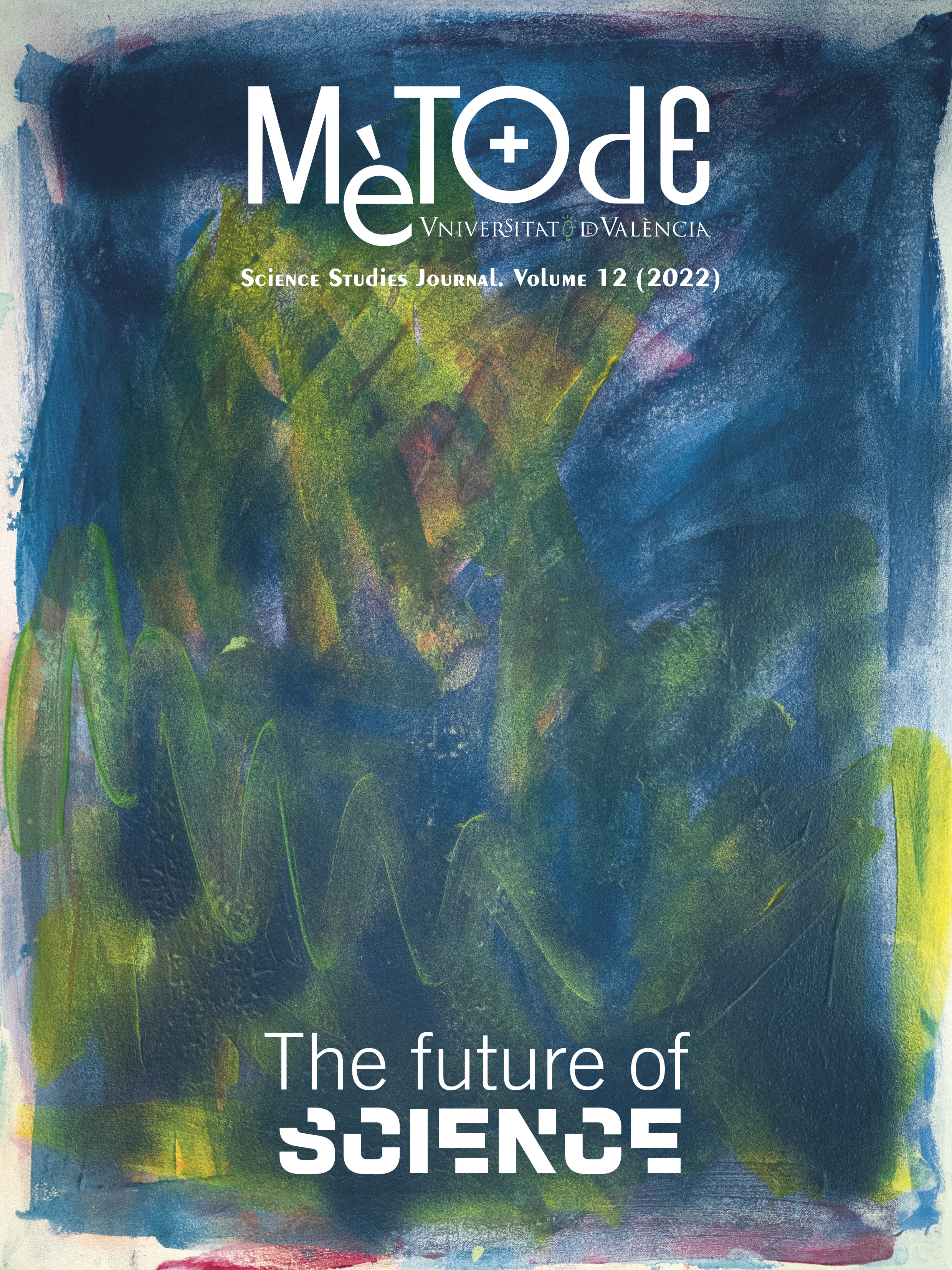We are (and will always be) ephemeral: Stories about futures with improved humans
DOI:
https://doi.org/10.7203/metode.12.20773Keywords:
science fiction, mythology, superheroes, pop culture, dystopia Abstract
Abstract
Stories about the future, and about the humans living in the future, stem from our awareness of our own limitations and all that which we may never be. These representations, whether utopian or dystopian, are evidence of the contradiction between our desires and our doubts.
 Downloads
Downloads
 References
References
Arnaudo, M. (2013). The myth of the superhero. The Johns Hopkins University Press.
Eco, U. (1964). Apocalípticos e integrados. Debolsillo.
Gorostiza, J., & Pérez, A. (2003). David Cronenberg. Cátedra.
Lee, S., & Kirby, J. (1963). The X-Men #1. Marvel.
Mayor, A. (2018). Gods and robots: Myths, machines, and ancient dreams of technology. Princenton University Press. https://press.princeton.edu/books/hardcover/9780691183510/gods-and-robots
Orwell, G. (2010). 1984. Edicions 62. (Original published in 1949).
Reynolds, R. (1992). Super heroes: A modern mythology. University Press of Mississippi.
Sala, A. (2017). Just imagine. 50 títulos esenciales del cine de ciencia ficción. Editorial UOC.
Siegel, J., & Schuster, J. (1949). Superman Vol. 1 #61. IDW Publishing.
Unceta Gómez, L. (2007). Mito clásico y cultura popular: Reminiscencias mitológicas en el cómic estadounidense. EPOS, XXIII, 333–344. https://doi.org/10.5944/epos.23.2007.10559
Downloads
Published
How to Cite
-
Abstract1022
-
PDF687
Issue
Section
License
![]()
All the documents in the OJS platform are open access and property of their respective authors.
Authors publishing in the journal agree to the following terms:
- Authors keep the rights and guarantee Metode Science Studies Journal the right to be the first publication of the document, licensed under a Creative Commons Attribution-NonCommercial-NoDerivatives 4.0 International License that allows others to share the work with an acknowledgement of authorship and publication in the journal.
- Authors are allowed and encouraged to spread their work through electronic means using personal or institutional websites (institutional open archives, personal websites or professional and academic networks profiles) once the text has been published.





